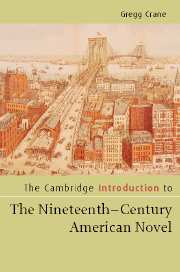Introduction
Published online by Cambridge University Press: 05 June 2012
Summary
The early American novel
Defining the novel is easy: it is a fictional prose narrative of substantial length. While one may question the distinction between fact and fiction or the requirement that the novel be written in prose, this simple definition seems generally apt, describing the books we commonly label as novels. It does not, however, say anything about why we read novels. A few key features accounting for the genre's appeal seem fairly plain. First, the novel lives and dies by its ability to create the fictional illusion of a complete world. This world may be highly realistic in the sense that it conforms closely to a recognizable historical moment, or it may be utterly fantastic. In either case, we must be able to see ourselves in it, imagine breathing its atmosphere and encountering its creatures and landscapes. Second, the reader must be driven to know what happens next, or, in all likelihood, he or she will put the book down. The other pleasures of the prose will probably not be sufficient to hold the reader in the absence of a compelling storyline and/or characters. Third, even if it is only to suggest the impossibility of finding meaning in art and experience, the narrative will have some significance beyond a mere recitation of characters and events. Stories of all types tempt us to connect them with explanations of larger meanings, values, and phenomena.
- Type
- Chapter
- Information
- Publisher: Cambridge University PressPrint publication year: 2007
- 1
- Cited by



